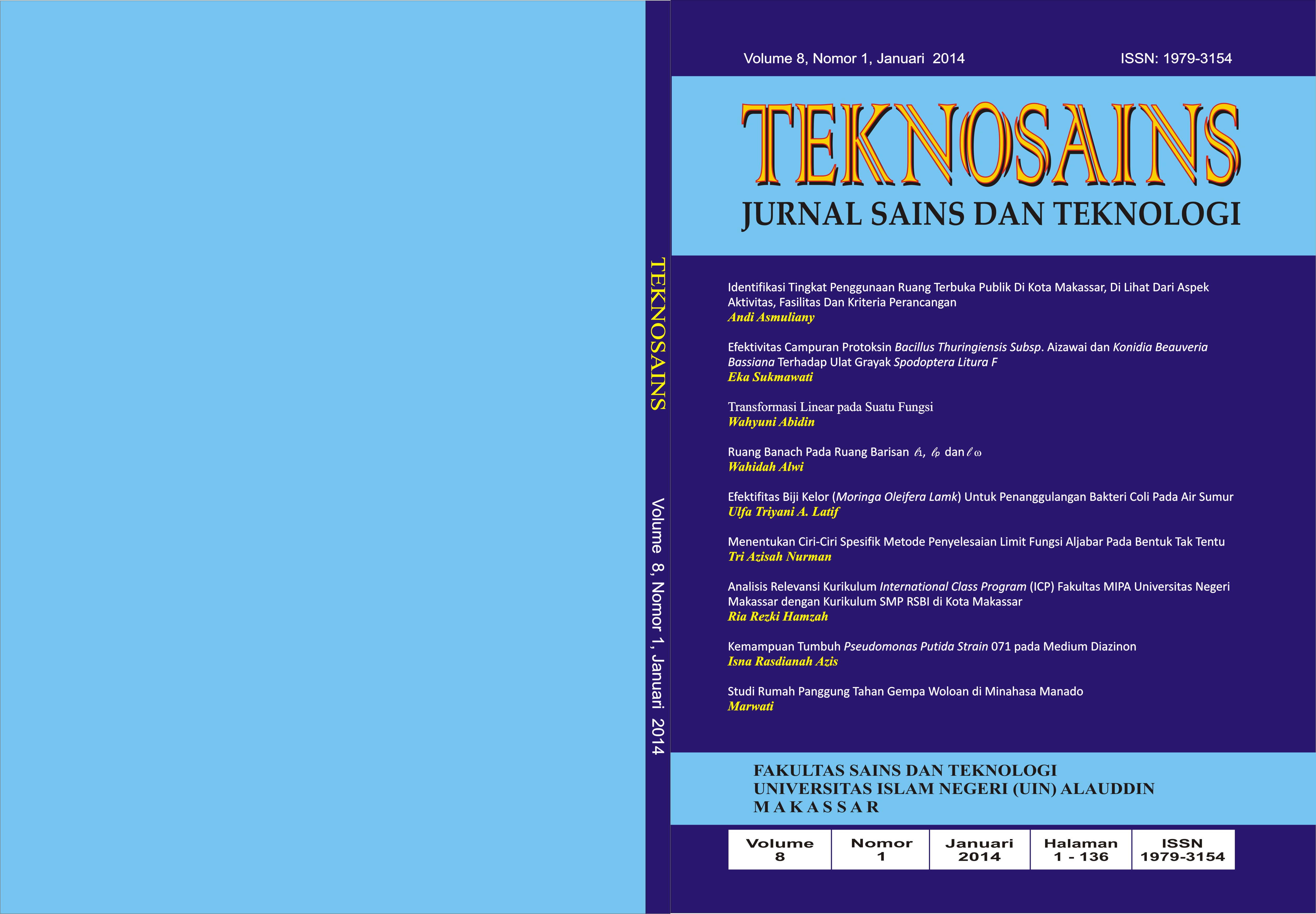ANALISIS RELEVANSI KURIKULUM INTERNATIONAL CLASS PROGRAM (ICP) FAKULTAS MIPA UNIVERSITAS NEGERI MAKASSAR DENGAN KURIKULUM SMP RSBI DI KOTA MAKASSAR
Abstract
The curriculum is one component that has a strategic role in the education system. Curriculum on International Class Program UNM Faculty of Science, has studied the course material to the students as prospective educators to consider the needs of field-oriented learners, particularly RSBI. The purpose of this study was to: (i) conduct an assessment of ICP Curriculum, State University of Makassar with the Education Unit Level Curriculum RSBI junior in Makassar to know kerelevanannya, (ii) quantify the proportion of material Curriculum Education Unit RSBI junior teaching science in City Makassar contained in the curriculum ICP Faculty of Science, State University of Makassar. This research is ex post facto research with data collection techniques through the study documentation and interviews. Data analysis using matrix method and presented descriptively.The results showed that: (i) curriculum with the curriculum of the UNM Faculty ICP RSBI junior in Makassar is relevant, judging from the number of points of the subject / sub teaching science subject that is in the course materials based on ICP analysis performed relevance, (ii) that contains several courses subject / sub subject science teaching also has a fairly high points, reaching 33.3% in Basic Biology courses, and 31.4% in the high School Physics courses Practicum. Based on the interviews conducted, by the author of the given input to produce university educators with international class to send its students to perform practical field experience in junior RSBI..
References
Anonim. 2011. Rasional Kurikulum RSBI SMP. www.google.com. Diakses tanggal 26 September 2011.
Ahmadi, Iif Khoiru. 2010. Strategi Pembelajaran Sekolah Berstandar Internasional & Nasional. Jakarta: Prestasi Pustaka.
Aslim, dkk. 2010. Review dan Analisis Relevansi dengan Kebutuhan Lapangan dalam Rangka Revisi Kurikulum Jurusan Fisika FMIPA Universitas Negeri Makassar. Laporan Penelitian. Makassar. UNM
Bustang. 2010. Lembaga Pendidikan Bertaraf Internasional (Abstrak oleh Hamzah Upu). www.google.com.Diakses tanggal 15 Oktober 2011.
Fitriadi.2009. Pengertian Kurikulum Menurut Para Ahli. www.google.com. Diakses tanggal 12 Oktober 2011.
Hamalik, Oemar. 2007. Manajemen Pengembangan Kurikulum. Bandung: Rosdakarya.
Hasan, Hamid. 2008. Evaluasi Kurikulum. Bandung: Rosdakarya.
Herry. 2009. Teori dan Konsep Kurikulum. www.google.com. Diakses tanggal 10 Oktober 2011.
Muhaimin, dkk. 2009. Pengembangan Model KTSP pada Sekolah dan Madrasah. Jakarta: Rajawali Pers.
Mulyasa. 2007. Kurikulum Tingkat Satuan Pendidikan. Bandung: Rosdakarya.
Nasution. 2008. Asas-asas Kurikulum. Jakarta: Bumi Aksara.
Nasution. 2008. Kurikulum dan Pengajaran. Jakarta: Bumi Aksara.
Rusman, Muhammad. 2009. Manajemen Kurikulum. Jakarta: Rajawali Pers.
Sagala, Syaiful. 2009. Manajemen Strategik dalam Peningkatan Mutu Pendidikan. Bandung: Alfabeta.
Sanjaya, Wina. 2008. Kurikulum dan Pembelajaran. Jakarta: Kencana.
Setiawan. 2011. Jenis-jenis Kurikulum. www.google.com.Diakses tanggal 22 November 2011.
Sudjana, Nana. 2005. Pembinaan dan Pengembangan Kurikulum di Sekolah. Jakarta: Sinar Baru Algensindo.
Sukmadinata. 2005. Pengembangan Kurikulum, Teori dan Praktek. Bandung: Rosdakarya.
Supriadi, Dedi. 2004. Membangun Bangsa melalui Pendidikan. Bandung: Rosda Karya.
Tim Dosen Universitas Pendidikan Indonesia. 2009. Manajemen Pendidikan. Bandung: Alfabeta.
This license allows authors to copy, redistribute, remix, transform, and build upon the Work, in any format or medium, for any purpose including commercial purpose, on a perpetual basis provided they credit the Work and the authors. Authors
must explain any changes that were made from the original and may not suggest the authors endorse the use. The resultant work must be made available under the same terms, and must include a link to the CC BY 4.0 International License.


 This work is licensed under a
This work is licensed under a 